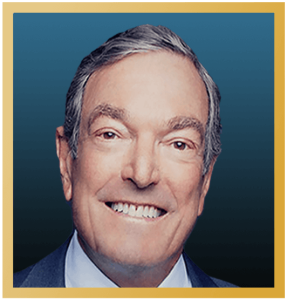Cable Pioneer

In 1964, after his parents dropped freshman economics student Jeff Marcus off at the University of California at Berkeley, he wandered over to Sproul Plaza where “a scraggly-looking guy was giving a speech.” The speaker was Mario Savio, a riot ensued, and Marcus witnessed the start of the year-long student protest that came to be known as the Berkeley Free Speech Movement, a landmark in the civil liberties efforts of the ‘60s. He describes the experience as “a Forrest Gump moment.” Like the Tom Hanks character, Marcus has been part of remarkable change. Unlike Forrest, his involvement was far from accidental.
In his junior year, Marcus drove a garbage truck from 5:00 a.m. to 2:00 p.m. Meanwhile, he says, “my roommate would leave for work at five in the afternoon and be home by nine. He was selling cable door-to-door, and I figured he had a better job and making twice what I was.” Marcus followed his roommate’s lead and made six sales his first night in cable sales. Even now, he still sometimes thinks in terms of how many sales it would take to make a desired purchase.
After college, he went on to sales and marketing jobs at companies including Sammons Communications, and then started a successful cable brokerage in 1976. But he soon began thinking about becoming a cable operator. “I realized it was better to own the asset than to be the asset,” he says. He bought a 2,000-subscriber system in Wisconsin. When TCI’s John Malone skeptically asked, “what do you know about operating a cable system?” Marcus replied “Well you do it — how hard could it be?” TCI became his partner, and the young entrepreneur started Marcus Communications in 1982 with 9,400 subscribers. The company merged with Western Tele-Communications in 1987 to become WestMarc Communications, with Marcus as CEO. In 1990, he founded Marcus Cable Company, which ultimately served more than 1.25 million customers in 17 states. “What attracted me the most was giving people a service they were happy to pay for,” he says. “When your name is on the door, you want to be proud of what you’re offering.”
Marcus Cable was the largest privately-owned cable company when it was sold to Paul Allen’s Charter Communications in 1998. The sale was bittersweet for Marcus. Although he missed running the company, he had been “dedicated to making sure that the people who were involved in the effort had a stake in the outcome. [The sale] made more money for so many people than they could ever have imagined. That was sweet.”
Marcus became President and CEO of AMFM, Inc., the nation’s second-largest radio company, and then joined private equity firm Crestview Partners in 2004, heading its media sector until he retired in 2018. He now serves as chairman of WideOpenWest. He remains bullish on the industry he helped build, and grateful for his 52-year career. “It’s been a great ride,” he says.
